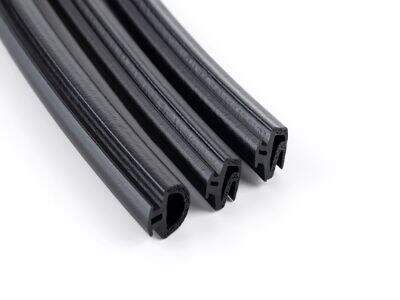Hogyan válassza ki a szelepzáró tömítések anyagait nagyteljesítményű motorokhoz?
A szelepcsapszeg tömítések aprónak tűnhetnek, de jelentős szerepet játszanak a motor teljesítményében. A szelepcsapszeg tömítések megértése segíthet abban, hogy motorja jobb állapotban maradjon.
Amikor eldönti, mit használjon szelepcsúcs tömítésekhez, figyelembe kell venni a hőmérsékletet, a nyomásviszonyokat és azt, hogy milyen üzemanyagot fog használni a motor. Különböző anyagoknak eltérő előnyeik vannak, amelyek meghatározhatják teljesítményüket ezekben a helyzetekben.
Előnyök
Ha különböző szelepcsúcs tömítőanyagokat vizsgál, képes lesz kiválasztani a megfelelőt a motorja számára. Egyes anyagok segítenek a súrlódás csökkentésében, mások pedig jobban ellenállnak a hőnek. Az egyes anyagok előnyeinek és hátrányainak ismerete segít Önnek egy jó döntést hozni.
Szóval mi a legjobb szelepcsúcs tömítőanyag a motorja számára? Néhány tipp a legjobb szelepcsúcs tömítőanyag kiválasztásához: ismerje meg, mit igényel a motorja, és kérjen tanácsot szakembertől. Ők segíthetnek kiválasztani egy olyan anyagot, amely jó teljesítményt nyújt, és hosszabb élettartamot biztosít a motor számára.
Előnyök
A szelepcsapszeg-tömítésekhez használt anyag nagymértékben befolyásolhatja, mennyire megbízhatóan működik továbbra is a motorja. A megfelelő anyag kiválasztásával segíthet megelőzni a motor szivárgását és kopását, amely azt jelentheti, hogy a motor hosszabb ideig tarthat és jobban teljesíthet.
Összefoglalás
A magas áramlási sebesség némi extra munkával jár, és fontos tényező minden nagy teljesítményű motor esetében, beleértve a Boman motort is. Ha megérti, hogy az egyes alkatrészek milyen anyagból készülnek és hogyan hatnak a motor teljesítményére, akkor tudatos döntést hozhat, amely évekig biztosítja a motor zavartalan működését.




